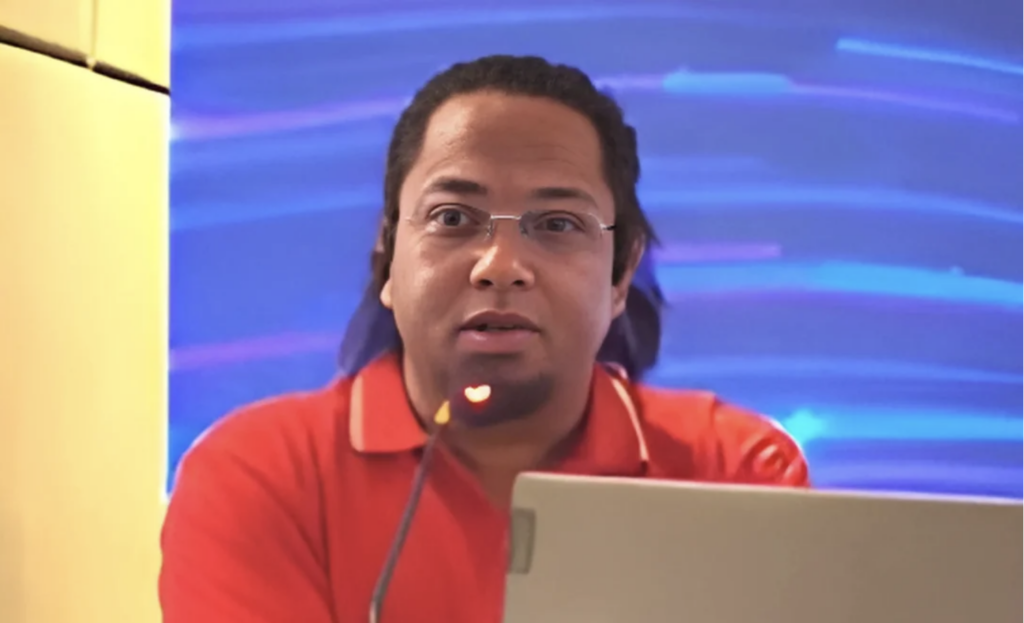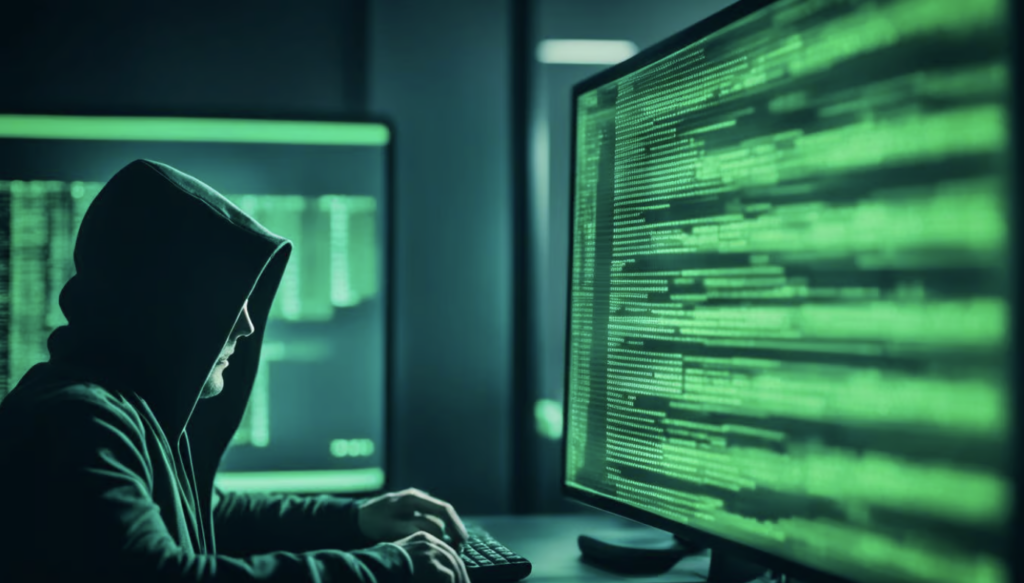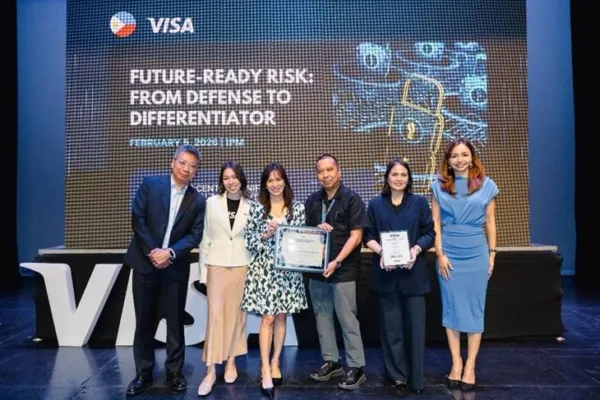by Jan Michael Carpo, Reporter
Cybersecurity threats are looming larger than ever as artificial intelligence (AI) rapidly transforms industries and businesses that have since embraced digital transformation.

Data breaches, illegal activities, and system breakdowns are becoming increasingly sophisticated, demanding innovative solutions to safeguard critical infrastructure and sensitive information.
Recognizing this urgent need, the “GRC Philippines Conclave 2025” brought together industry leaders, government officials, and cybersecurity experts at the Dusit Thani Hotel in Manila last January 17.
The event, hosted by global cybersecurity firm Ampcus Cyber, provided a platform for in-depth discussions on the latest threats, emerging technologies, and best practices for navigating the evolving risk landscape.
Maintaining cybersecurity is paramount

Deep Chanda, CEO of Ampcus Cyber, while stressing a point during the conclave
“Maintaining security and compliance is paramount for companies navigating this digital revolution,” emphasized Deep Chanda, CEO of Ampcus Cyber. “This conclave aims to empower businesses with the knowledge and tools to effectively address these challenges and build a more resilient digital future.”
The event featured a diverse lineup of speakers, including Department of Information and Communications Technology (DICT) Undersecretaries David Almirol and Jeffrey Ian Dy, Yew Kuann Cheng (Regional VP for Asia Pacific, PCI Security Standards Council), and leading figures from the Philippine cybersecurity landscape.
The attendees engaged in thought-provoking discussions, interactive workshops, and valuable networking opportunities, exploring critical topics such as:
- The Impact of AI on Cybersecurity: From enhancing threat detection and automating compliance procedures to fortifying defenses against dynamic attacks, the conclave explored how AI is reshaping the cybersecurity landscape.
- Navigating the Regulatory Landscape: With increasing data privacy regulations, the event addressed the challenges of ensuring compliance while maintaining business agility.
- Building a Human-Centric Cybersecurity Approach: Recognizing the critical role of human awareness, the conclave emphasized the importance of employee training and education in mitigating cyber threats.
CICC warns of rising cybercrime threats

Robert Sanchez Paguia, Data Protection Officer at the Cybercrime Investigation and Coordinating Center (CICC), highlighted the growing prevalence of cybercrimes in the Philippines. “Our goal is to suppress cybercrimes and ensure the integrity of the nation’s digital transformation,” Paguia stated.
He emphasized the importance of public awareness, outlining common threats such as malware, phishing attacks, and ransomware. Citing data from insurance company Hiscox, Paguia revealed that cyberattacks can cost businesses an average of $200,000, often leading to bankruptcy.
To empower individuals and organizations to defend themselves, Paguia urged the public to:
- Keep software and operating systems updated.
- Use strong, unique passwords for each account.
- Be wary of suspicious emails and avoid clicking on unknown links.
- Never share personal information unless absolutely necessary.
- Utilize multi-factor authentication whenever possible.
For his part, Chanda also emphasized the crucial role of community awareness in combating cybercrime. “Any community is built around people,” he stated. “If we can educate ourselves about the threats and learn to identify suspicious activity, we can significantly improve our cybersecurity posture.”
The GRC Philippines Conclave 2025 served as a crucial platform for industry leaders to collaborate, share best practices, and develop innovative solutions to the evolving cybersecurity challenges facing the nation.
Cybersecurity challenges are intensifying alongside the rapid growth of artificial intelligence (AI), which is creating a wealth of opportunities for innovation and transforming industries worldwide.
As most experts would say, “With great power comes great responsibility!”
This could not be more relevant than today when most businesses are balancing AI adoption with data privacy and cybersecurity. Integrating AI with cybersecurity and data privacy in the Philippines has also introduced unique complexities, underscoring the need for regulatory frameworks to keep pace with these advancements.
As AI use expands, so does the volume of personal data it requires — thus raising pressing questions about data security, privacy, and ethical implications. By fostering a stronger cybersecurity ecosystem, the Philippines can safeguard its digital future and thrive in an interconnected world.





